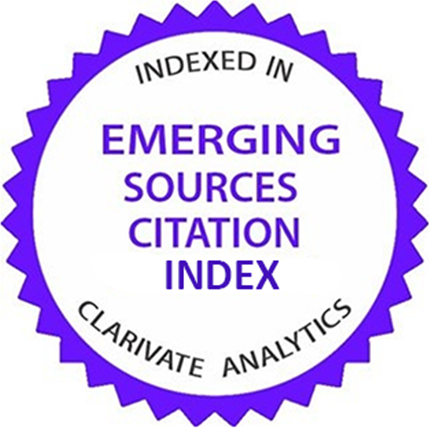Could Fampridine Attenuate the Severity of COVID-19 in Patients with Multiple Sclerosis?
Abstract
Since the onset of COVID-19 in December 2019, millions of people have been infected with SARS-CoV-2 across the world and many have died of the disease. Therefore, the search for any drug with a positive effect on the course of this disease is of great value. Fampridine is a drug widely used to improve gait disorders in patients with multiple sclerosis. The mentioned drug is a potassium channel blocker that increases the conduction of action potentials in damaged axons. However, it is not evident whether this drug can affect potassium channels on the surface of other cells. Some studies have revealed that potassium-blocking drugs can play a role in reducing the incidence or severity of infectious diseases. Hence, the question of whether fampridine could also have a protective effect on patients with MS in the face of COVID-19 should be attended to. The incidence and severity of COVID-19 in patients with MS receiving fampridine (Dalfyra®, Arvand Pharmed) were evaluated to address the mentioned question. In the present study conducted in November 2020, 117 MS patients receiving fampridine were tested for COVID-19. The majority of these patients (55.6%) were receiving rituximab. Of these 117 patients, nine were infected by the COVID-19 virus. Of these nine patients, five and four were female and male, respectively. Eight of the infected patients took rituximab, and one did not take any disease modulatory drug (DMD). One of these nine patients required to be hospitalized. She was a 40-year-old woman with MS disease duration of 3.5 years and was treated with rituximab. Her symptoms were manifested by fever, shortness of breath, and dry cough. The mentioned patient was hospitalized for three days due to the conditions associated with COVID-19. She did not need to be admitted to the intensive care unit (ICU) and was discharged with a good medical condition after three days. The incidence of COVID-19 in these patients was 7%, and the hospitalization rate was 11% in patients receiving fampridine. None of the patients with COVID-19 required hospitalization in the ICU, and no fatalities were reported. In a previous study conducted on 4,647 patients with MS in Iran, the incidence rate was reported to be 1.46% during the first wave of COVID-19 (May 2020). The incidence rate in our study was 7%, which was significantly higher than the percentage of the previous report. It should be noted that our study was conducted at the height of the second wave of COVID-19 in Iran, during which a much larger number of people were infected with COVID-19, according to official statistics. In the previous study, the hospitalization rate was 25%. However, fampridine users, despite being more infected, had a lower hospitalization rate (11%), which indicated a lower severity of the disease in these patients. The mentioned finding could be due to the possible protective effect of fampridine on the exacerbation of COVID-19 in these patients. This hypothesis requires further examination in more detail.
2. Valet M, Quoilin M, Lejeune T, Stoquart G, Van Pesch V, El Sankari S, Detrembleur C, Warlop T. Effects of Fampridine in People with Multiple Sclerosis: A Systematic Review and Meta-analysis. CNS Drugs. 2019;33(11):1087-99.
3. Kim ES. Fampridine Prolonged Release: A Review in Multiple Sclerosis Patients with Walking Disability. Drugs. 2017;77(14):1593-602.
4. Sordi R, Fernandes D, Heckert BT, Assreuy J. Early potassium channel blockade improves sepsis-induced organ damage and cardiovascular dysfunction. Br J Pharmacol. 2011;163(6):1289-301.
5. Sordi R, Fernandes D, Assreuy J. Differential involvement of potassium channel subtypes in early and late sepsis-induced hyporesponsiveness to vasoconstrictors. J Cardiovasc Pharmacol. 2010;56(2):184-9.
6. Kuo JH, Chen SJ, Shih CC, Lue WM, Wu CC. Abnormal activation of potassium channels in aortic smooth muscle of rats with peritonitis-induced septic shock. Shock. 2009;32(1):74-9.
7. Sahraian MA, Azimi A, Navardi S, Ala S, Naser Moghadasi A. Evaluation of the rate of COVID-19 infection, hospitalization and death among Iranian patients with multiple sclerosis. Mult Scler Relat Disord. 2020;46:102472.
8. Corona Tracker. Iran Overview (Avalable from: https://www.coronatracker.com/country/iran/).
| Files | ||
| Issue | Vol 5 No 3 (2021): Summer (July) | |
| Section | Letter to the editor | |
| DOI | 10.18502/fem.v5i3.5888 | |
| Keywords | ||
| COVID-19 Dalfyra Fampridine Multiple sclerosis | ||
| Rights and permissions | |

|
This work is licensed under a Creative Commons Attribution-NonCommercial 4.0 International License. |










